‘Justice delayed’ in Texas city where police killed a Black woman | Black Lives Matter
Listen to this story:
Fort Worth, Texas – If you walk up the hill at Hillside Park, roughly five minutes from James Smith’s house, you can see the view the retired US Army veteran has been thinking about for six decades.
From there, the downtown Fort Worth skyline is backlit by the bright Texas sun and an impossibly blue sky. If you know what to look for, you can point out the location of the city’s famous stockyards and several other landmarks. Though its buildings may not scrape the glittery heights reached in Dallas, some 30 minutes away, Fort Worth is no slouch. The city is home to nearly one million people, a growing economy, and even talk of future luxury high rises on the horizon.
It signals prosperity, but only for some; that’s what Smith thinks about when the 65-year-old walks to the community park from his quiet, historically Black, working-class neighbourhood in southeast Fort Worth. A church and a mortuary sit just down the street from his house, surrounded by scores of shuttered shops and buildings.
Residents of his section of the city feel perpetually cut off from the ever-increasing influx of wealth, development and amenities populating the other side of town, and while Smith thinks the nearby view is aesthetically “fantastic”, it gives him no comfort.
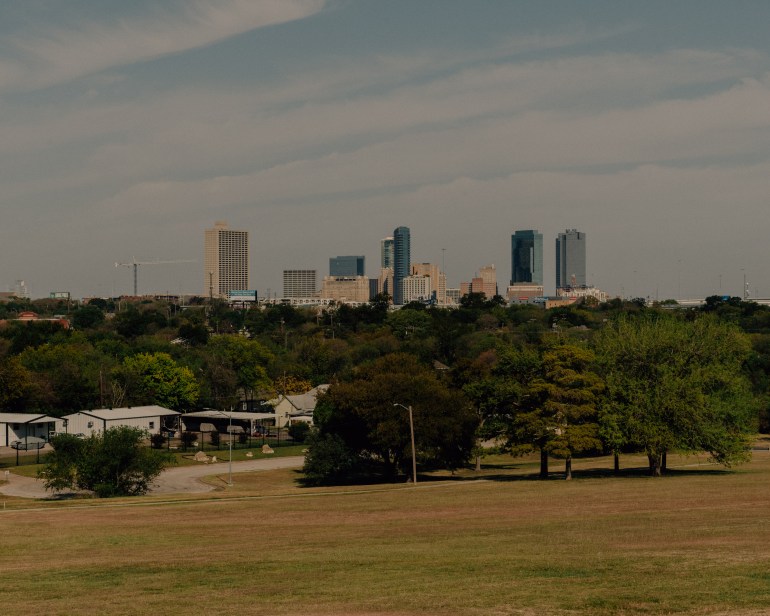
“When I see that view, I know what’s on the other side … It’s economic boom,” he says. “But on this side of Fort Worth?” He chuckles, a melancholy laugh that’s somehow softer than his voice. “There’s nothing major done on this side, the southeast side of Fort Worth.”
When Smith talks about his city, he often casts his eyes downward, speaking with a resigned sadness while lamenting the way things are and accepting that they will probably always be that way. “There have been many a generation that sang, ‘a change is gonna come,’” he says. “I really don’t see that happening.”
Still, he is committed to doing what he can. He writes poetry; attends city council meetings; and after his mother died of cancer, he took in an elderly blind woman who was in her care, instead of sending her to a nursing home.
The choice was an easy one for Smith, who spends significantly more time thinking about others than himself. “I’ll get to me when I get to me. My task is to prepare and serve you,” he says, talking about his morning routine making breakfast for his houseguest. He now considers his caretaking role a full-time job.
When he’s not serving his houseguest – and sometimes when he is – he thinks back to the early morning hours of Saturday, October 12, 2019: the day he called the police for a welfare check on Atatiana Jefferson, the neighbour across the street.
The lights were on, the door was open, and Smith wanted to know if his neighbour was OK.
At the time, Jefferson, a 28-year-old Black woman, was playing video games with her eight-year-old nephew inside her home. Soon after 2am, without announcing his presence, police officer Aaron Dean, a white man, skirted the outside of the house. According to court records, Jefferson told her nephew she heard noises in the yard, so she grabbed a gun and went to look out a window. That’s when Dean fired a shot and killed her.
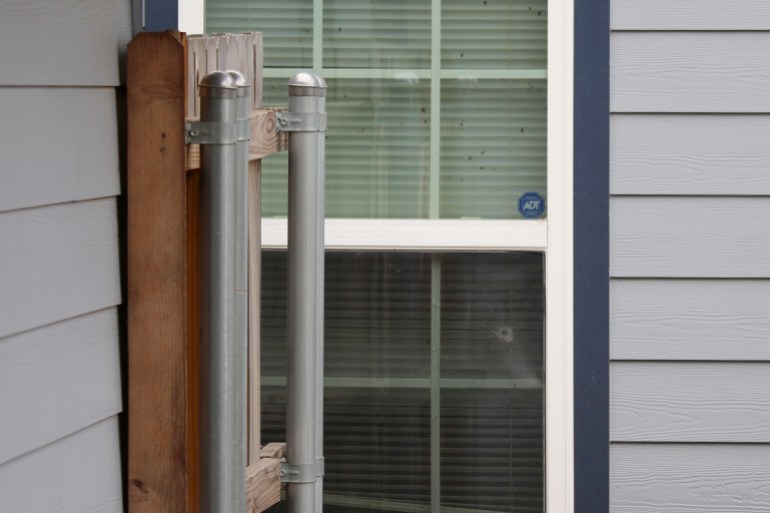
This was seven months before the murder of George Floyd, a Black man killed by police in Minneapolis, and a summer filled with nationwide protests against police brutality. Although the mayor apologised, the police brass showed remorse, and Dean was arrested for murder, attention soon waned.
On December 5, Dean will finally face trial. But for many in Jefferson’s community – especially Smith – the events of that night continue to take a toll on their lives. Meanwhile, the long-delayed case has exposed both the limits of significant police reform and Fort Worth’s stark racial divide.
Since the shooting, the city has yet to see any major changes to police policy, and a scathing new report commissioned in the wake of Jefferson’s death reveals “disturbing” behaviour related to the use of force, retaliation, and a lack of accountability on the force. At least one optimistic councilman, a local named Chris Nettles, is trying to give marginalised communities a seat at the table via a police advisory board, but unlike cities such as nearby Austin, Texas, and states like Colorado, Connecticut and New Mexico, Fort Worth has yet to see serious discussion on reform.
“I’ve learned not to expect much from most of Texas, and especially from Fort Worth,” says Kendra Richardson, founder of a local mutual aid organisation. She calls the marginalisation of communities like Smith’s a form of “apartheid”.
Two tales of one city
“There have always been two Fort Worths living side-by-side,” writes local historian Richard F Selcer. “One white and one black.”
Like many US cities, Forth Worth was divided by redlining: the long-standing practice in which the government-sponsored Home Owners’ Loan Corporation shaded red areas on a city map to discourage lenders from making loans. Those areas were home to sizable Black populations, and the red lines led to generations of income disparity and poverty.
The zip code in which Dean killed Jefferson, 76104, is one such area. Many of its denizens are living in poverty, which health experts have linked to low life expectancy. Residents of 76104 have a life expectancy of about 67 years: 12 years below the national average.
“According to the stats, I only have two more years left,” says Smith. “So these next two years are critical for me.” Stress, he adds, takes years off your life. It shows; he has lost a lot of weight, and his pants sag on his frame as he moves about.
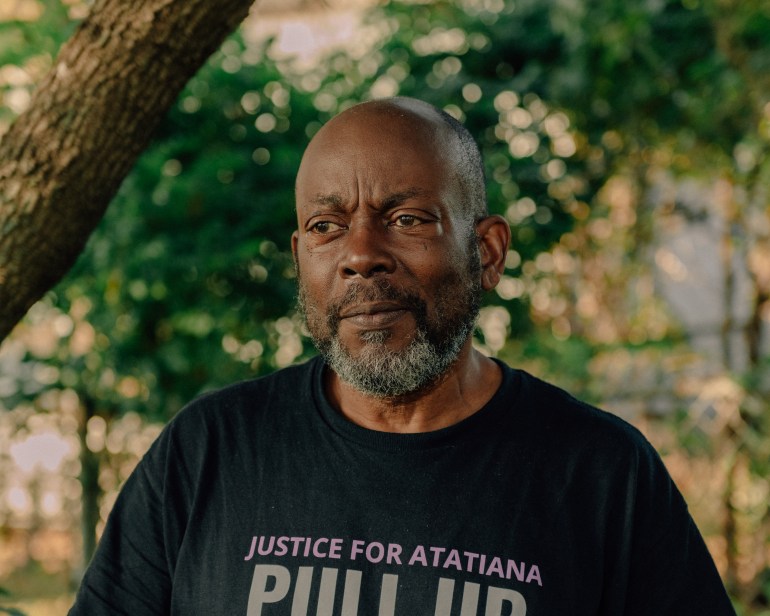
He is trying to take it easy whenever he can, but that’s tough when he regularly attends city council meetings to talk about transparency, “basic human rights”, and his former neighbour.
“Fort Worth is like Oz to me, and the curtain has been pulled back,” Smith says. “So when I go downtown, I’m going down the yellow brick road. I’m going to see the wizard.”
In the three years since Jefferson’s death, Smith estimates he has been to dozens of meetings to talk about her or simply stand outside city hall holding a sign bearing her name. Many people walk by and ask who the woman is on his poster.
Like Jefferson’s siblings, who created a foundation in their sister’s name, Smith has tried to keep her name alive in a country with a short attention span for most victims of police violence.
While Black Americans account for less than 13 percent of the US population, they are twice as likely as white people to be killed by police. Further, research by The Washington Post reveals around 1,000 people are killed by police each year. That trend has remained unchanged over the last two years.
After George Floyd was murdered in Minnesota in May 2020 and Americans took to the streets by the millions, more than 20 US cities reduced police budgets in some form. But many of these were cities led by Democrats, including Austin, which is roughly three hours south of Fort Worth. In many more cities, police funding has actually increased since Floyd’s death, and the movement to “defund the police” has been blamed by right-wing politicians for spikes in violent crime. (Any supposed link between the two has been debunked.)
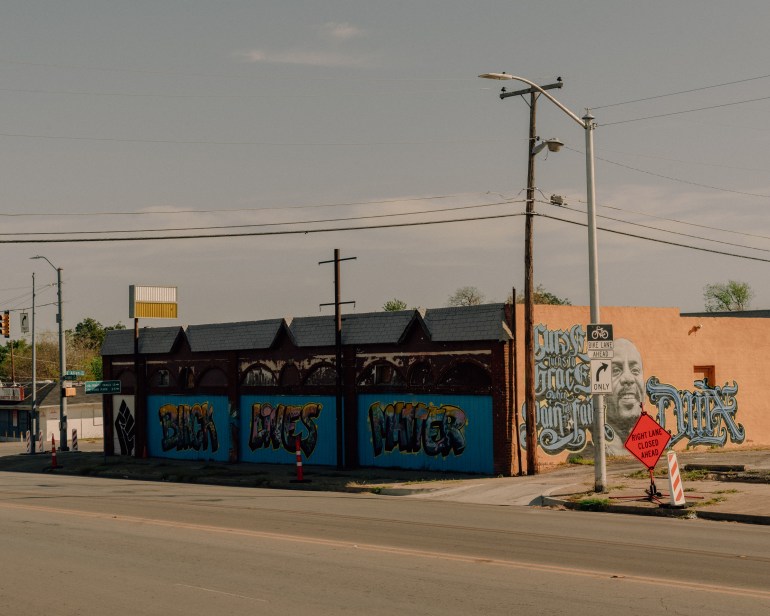
Fort Worth is one of the largest cities in the US with a Republican mayor. In the aftermath of Jefferson’s death, city leadership took a hardline stance against the “defund” movement.
“One thing I want to do is compliment and commend our city leadership,” Police Chief Neil Noakes told reporters last year, “because when we had other large cities screaming for defunding and the city leadership caving to that, our city leadership – mayor, council, city manager’s office – all stood up and said, ‘No, we are not defunding the police in Fort Worth, Texas. It is not going to happen.’”
Mayor Mattie Parker has tried to distance herself from the more extreme and divisive elements of the Republican Party. Still, Parker is a staunch ally of the local police department, and her critics – including several people interviewed for this story – are not confident the city will see the large-scale police reform they believe Fort Worth needs. The same week as the three-year anniversary of Jefferson’s death, Fort Worth unveiled a new $20m headquarters housing the police department’s South Patrol. (The city’s police budget is nearing $300m: nearly one-third of Fort Worth’s main operating fund.)
“I am currently under subpoena for this trial,” Parker said when contacted for comment by Al Jazeera, “and it is the directive of the court that I must not make comments regarding the trial at this time. As Mayor, my focus remains on continuing the progress we’ve made in addressing the needs of our entire community, seeking greater understanding and unity, and ensuring the City of Fort Worth honours Atatiana Jefferson’s legacy.”
‘I want Fort Worth to be better’
Patrice Jones, a founder of a local non-profit, is not surprised by the increasingly high police budget. Nor is she waiting on the city to help out communities like Smith’s. Jones is angry about the way police treat people of colour in Fort Worth, and that anger fuels scrupulous research. She knows precisely how much Fort Worth spends on policing compared to other city needs, and can rattle off the names of people killed by the police the same way others may list their relatives.
“I want Fort Worth to be better,” she says. “If Fort Worth wants to be the city it claims it wants to be, it can’t keep going the way it’s going.”
Jones founded a community organisation that builds gardens for people like Smith. Activism was never her thing, she says, until she realised the area where Jefferson was killed is a food desert: an area where residents have few to no options for healthy and affordable food.
“We put gardens in people’s homes and help them maintain it for a year,” she says, “but we’re having a hard time letting go, so I think we’re gonna do it forever.”
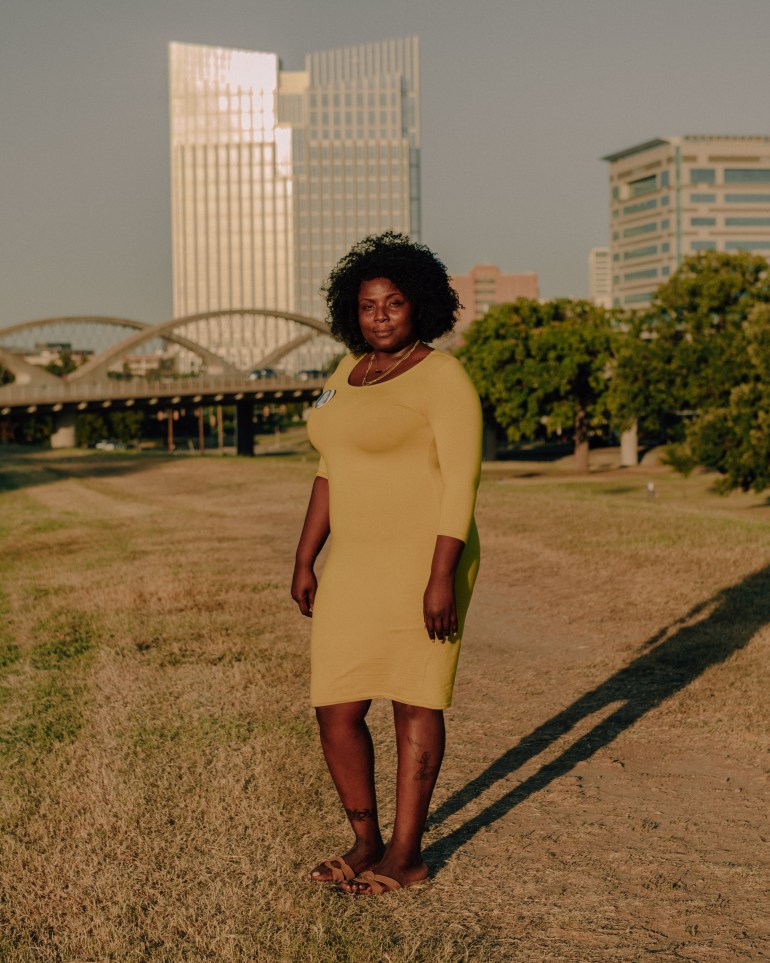
Jones’s mother is from Fort Worth, and her father was one of the first Black children to integrate local Sunrise-McMillan Elementary School back when US schools were desegregated. Yet when she thinks of Fort Worth, she thinks of an old magazine article from D Magazine in Dallas. The 1995 article, entitled Who Runs Fort Worth?, describes how a select group of wealthy families cultivated a tiered system of power in the city. Those families, some of whom are still prominent, were at the top tier; the corporate and political elite occupied the second tier; and the third tier consisted of professionals who mostly owed their jobs to the folks in the second tier.
The fourth and final tier – which is also the biggest – is comprised of “the voiceless”: people living with lower incomes, or living in outright poverty.
“These are the people,” the article explains, “whom the third tier is frequently trying to get the second and first tier to help, if only out of enlightened self-interest.”
That article was published nearly three decades ago, but Jones argues Fort Worth is largely the same. Many of the same families are still city fixtures and major patrons of the arts, she points out, and there still exists a major gulf between the haves and the have-nots.
In the absence of city support, people like Smith, Jones and Richardson lean on each other.
Like Jones, Richardson created an organisation to provide healthy food to the community. Funky Town Fridge’s refrigerators are open 24-7, and according to Richardson, “You get what you can, take what you need. No one’s asking any questions.”
Each of the organisation’s three fridges is located in southern Fort Worth, and each relies solely on what the community provides. Neighbours donate food, hygiene products and baby formula, and people can pick up these goods at no cost. The whole system runs on donations and volunteers, and when either of those is in short supply, Richardson picks up the slack.
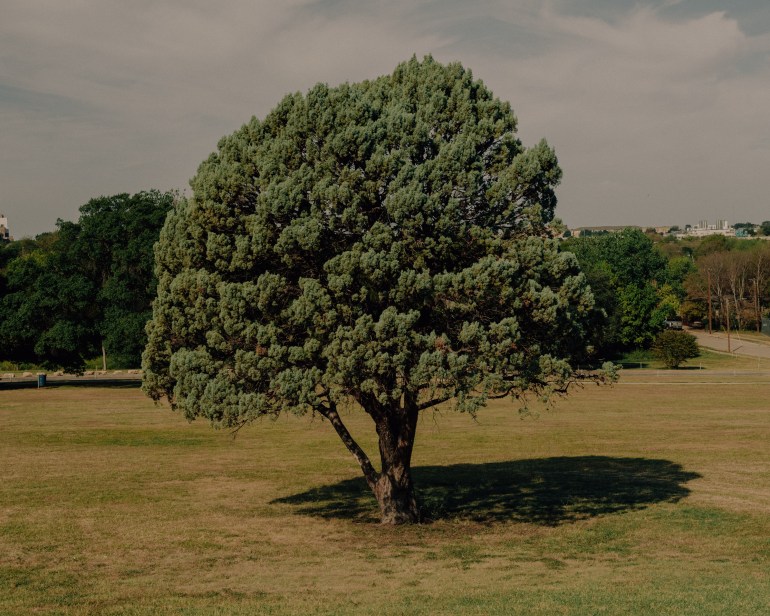
She and Jones have something else in common: they are both filling gaps they acknowledge should either not exist or be filled by local leadership.
Richardson, who works a full-time job plus another 40 hours a week for Funky Town Fridge, applied for a county grant and got denied. The organisation operates with no help from the city or county, and recently, Richardson has been supporting it with her own money. Every time she gets a note from someone Funky Town Fridge has helped, she feels bittersweet. “It shouldn’t just fall on me,” she says. “I never created this to fall on me.”
Smith, too, says he has received very little support in his ongoing effort to raise continuous awareness about Jefferson’s death. For instance, he says the local chapter of the National Association for the Advancement of Colored People (NAACP), a famed civil rights organisation, has not been vocal on this issue. (The chapter did not return Al Jazeera’s request for comment.) Even worse, Smith says he asked a local pastor if their church could help with his electricity bill, and the pastor instead urged him to “drop” his concerns about the Jefferson case.
“You need to let God handle it; let someone pick up the torch,” the pastor told him.
“It’s been three years,” Smith replied, “and no one’s picked it up yet.”
Retreating to the back
Shortly after the shooting three years ago, Haley Taylor Schlitz, then 17, drove a half-hour from her family’s home in the suburbs to attend an event in the field next to Jefferson’s house. She has a knack for public speaking, so Taylor Schlitz joined many others in addressing the crowd. It was intimidating, she notes, but she channeled her nervous energy into a passionate address that drew on her own brushes with racism as a child in the Texas suburbs. When Taylor Schlitz dives into a speech, she trades her wide, ebullient grin for an oratory style in which the words seem anxious to get out of her mouth and into the world.
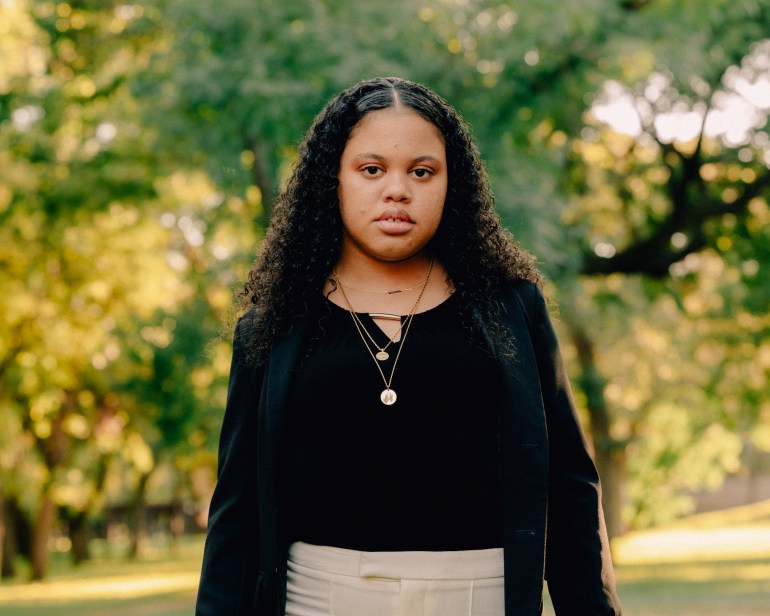
“I talked about the outrage I felt as a woman and a woman of colour,” she says. “And I talked about the kids. Kids see how this is handled; when we sweep it under the rug, they notice.”
Now 20, Taylor Schlitz is often called a “prodigy”. She recently graduated from law school and works as a teacher in one of the many affluent suburbs surrounding Fort Worth. As such, she is passionate about the recent book bans that have shaken Texas schools. Across the state, religious and conservative groups have targeted books about racism or LGBTQ issues. These groups are frequently successful in their attempts to remove books like Toni Morrison’s The Bluest Eye from school libraries.
To Taylor Schlitz, Fort Worth and the surrounding suburbs are a microcosm of a broader American problem: the attempted erasure of a troubling past, and an ongoing failure to address the reasons the past is so troubling. Sustained confrontation of deep-seated issues like racism is, by nature, uncomfortable. And in Taylor Schlitz’s words, these Texas cities are “opting for comfort”. The only way to affect change is to keep demanding it, she says – but she knows how physically and emotionally taxing that can be for the people making demands.
After the event in the field by Jefferson’s house, the young teacher noticed a trend that has been often called out and criticised since the summer of 2020. “At the end of a protest, everyone goes home,” she says. “At the end of a social media post, everyone likes it and moves on.”
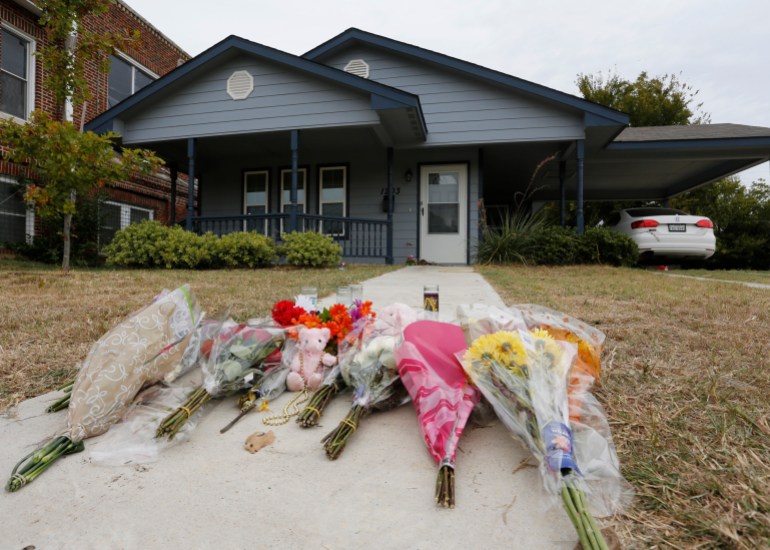
Smith noticed this, too.
“In the early beginning, there were crowds,” he says, referring to the days after Jefferson was killed. “But now, there ain’t nobody.”
He holds his fingers to his lips for emphasis, like a librarian shushing a noisy student. “It’s all, ‘Shhhhh,’” he says.
Smith is particularly troubled by the delays that pushed Dean’s trial to December 2022. While some of those delays have been procedural, like when a judge gave both sides more time to file motions, more recent delays were caused by the recusal of a judge who the defence argued is biased against Dean. The defence has also tried to have the trial moved out of the county. That hasn’t happened, but Smith was still troubled by the prospect.
If the officers who killed George Floyd can face trial in their own city, he points out, then what’s wrong with Fort Worth?
Like Jones and many others Al Jazeera spoke to, Smith isn’t optimistic about the trial’s outcome. Murder convictions for police are rare, and the delays have been increasingly demoralising for those following the case.
“We know that justice delayed is justice denied,” Jones says.
Deafening silence
Even Taylor Schlitz, who is unfailingly optimistic, notes that the people in the streets need help from people in the halls of power – people like Chris Nettles.
Nettles, who runs a local daycare centre, was born and raised “around the block” from where Jefferson was killed. He ran for mayor in 2017, and when he lost, he decided to give the city council a go. He wants to bring “prosperity” to his side of Fort Worth. He wants, in effect, to make folks like Smith think differently about that view in Hillside Park.
“‘How can we fix this issue?’” he asked himself before he ran and won in 2021. “‘How can we be a part of the process?’ It lies with the mayor and the council. They have the strongest voice and the strongest power within our city.”
Nettles is a Black man with long hair, rectangular glasses, and a skill inherent to American politicians: an ability to make you feel heard. He has a joyful, reassuring smile, but all traces of it fade when he talks about the plight of his hometown.
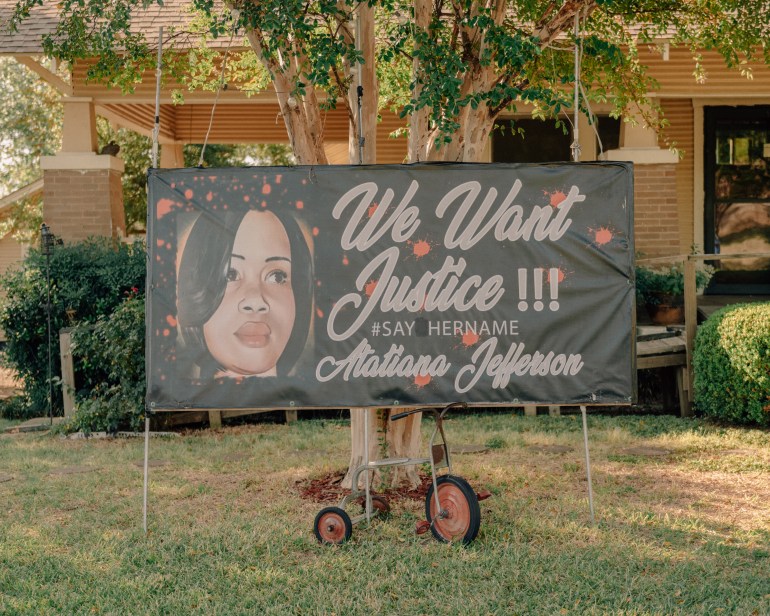
In his eyes, the Atatiana Jefferson case is the perfect example of how the “strongest voice” – in this case, the government – can also make the most deafening silence.
“We’ve never had local leadership to say ‘look into that, let’s do something about it,’” he says. “After Atatiana, they made a statement, but that was it. There wasn’t no push to get this trial over and done with so we can start healing. We didn’t have anyone magnifying the voice of the people, so it made it seem like our voices wasn’t being heard. We’re three years in, so the crowd is not as big, and the activism is not as loud.”
Most recently, Nettles tried to push the council to create a police advisory board staffed by civilians. The idea was that hiring, firing and disciplinary decisions would still remain the chief’s domain, but the board would provide recommendations. Though he worked for months to garner more support, in early November, the advisory board was shot down when the mayor joined four council members to vote “no” on its creation. Even before the vote, Nettles was disturbed by how “watered-down” the proposal for the board had become by amendments made to appease its critics, who called it unnecessary and even adversarial to police.
Nevertheless, the councilman continues to push for the board; a staff member told Al Jazeera that Nettles plans to bring it up at every council work session.
He is also trying to bring affordable housing and tax breaks for businesses to the zip code he once called home: 76104.
“We have had conversations,” Nettles says, “we just haven’t been able to push it through yet.”
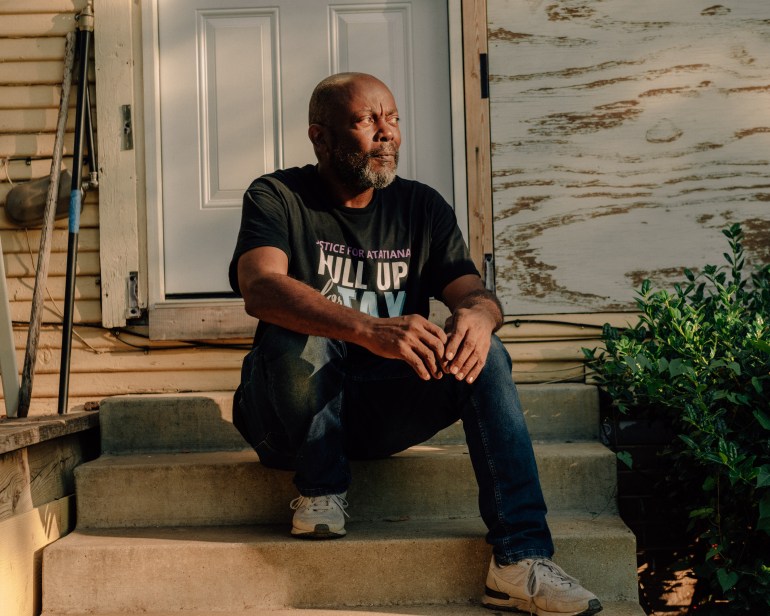
Smith is one of Nettles’s constituents, and in his view, the guy is “pretty cool”.
When Smith noticed the weed-filled foliage behind his house was growing as high as three feet (one metre), he mentioned it at one of the many council meetings he has addressed. Sure enough, the city has sent a crew to cut the alley’s grass a couple of times this year already. That, Smith says, is progress.
He noticed the alley’s unkempt state because he now spends much of his time in his backyard. Whereas he used to enjoy sitting on his front porch and watching the cars drive by, he has now “retreated to the back” after the events of October 12, 2019.
“I don’t want to look there anymore,” he says of Jefferson’s house. So instead, he looks at the garden Jones planted in his backyard roughly two years ago. It’s got cabbage, cherry tomatoes, broccoli, chives, and okra, a personal favourite. In fact, on one cool autumn morning, the kind of morning when Smith might usually go for a walk, he is sitting on his back porch in the city he has called home for 65 years.
Speaking softly and working slowly, he grabs an okra pod and splits it open.
“My suggestion to anybody,” he says, “is if you buy anything that has a seed in it, you should keep the seed. I’m not a doomsday prepper or anything like that, but if there is a shortage of food, you need to be able to grow your own.”
Otherwise, he adds, you’ll rely on someone else to feed you.
“It’s about survival,” he says.

Pingback: Buy Beretta 687 Silver Pigeon III
Pingback: adult chat
Pingback: สล็อต 1688 เว็บตรง วอเลท